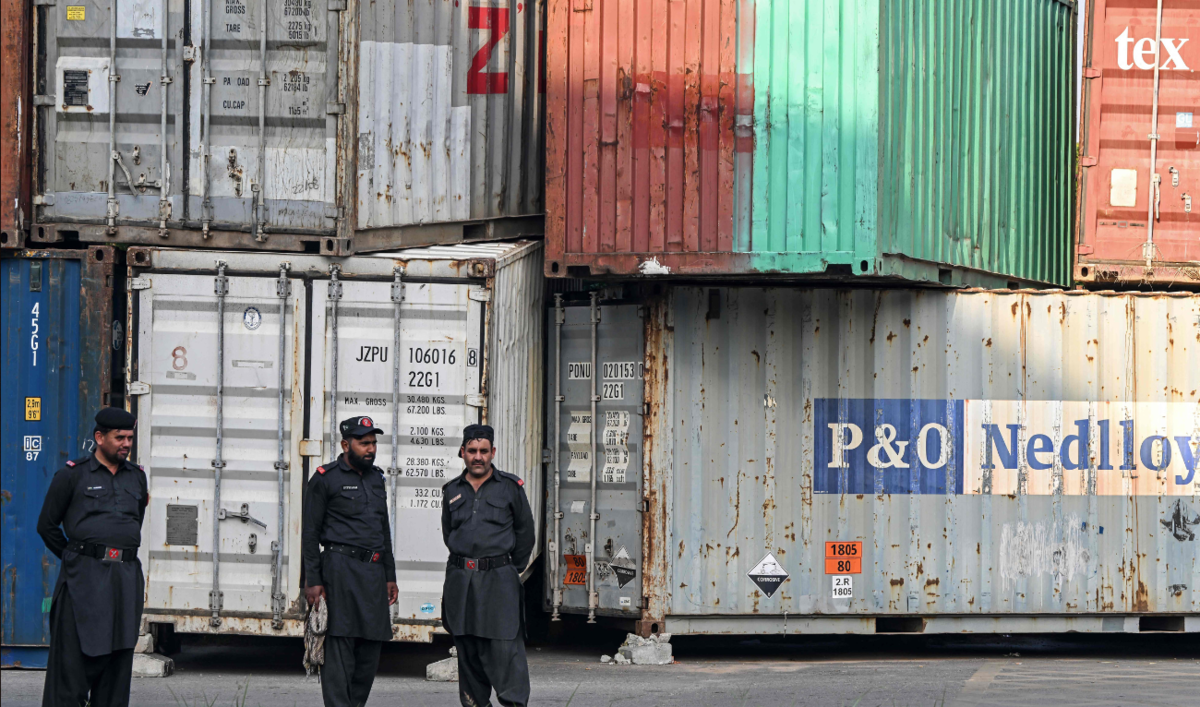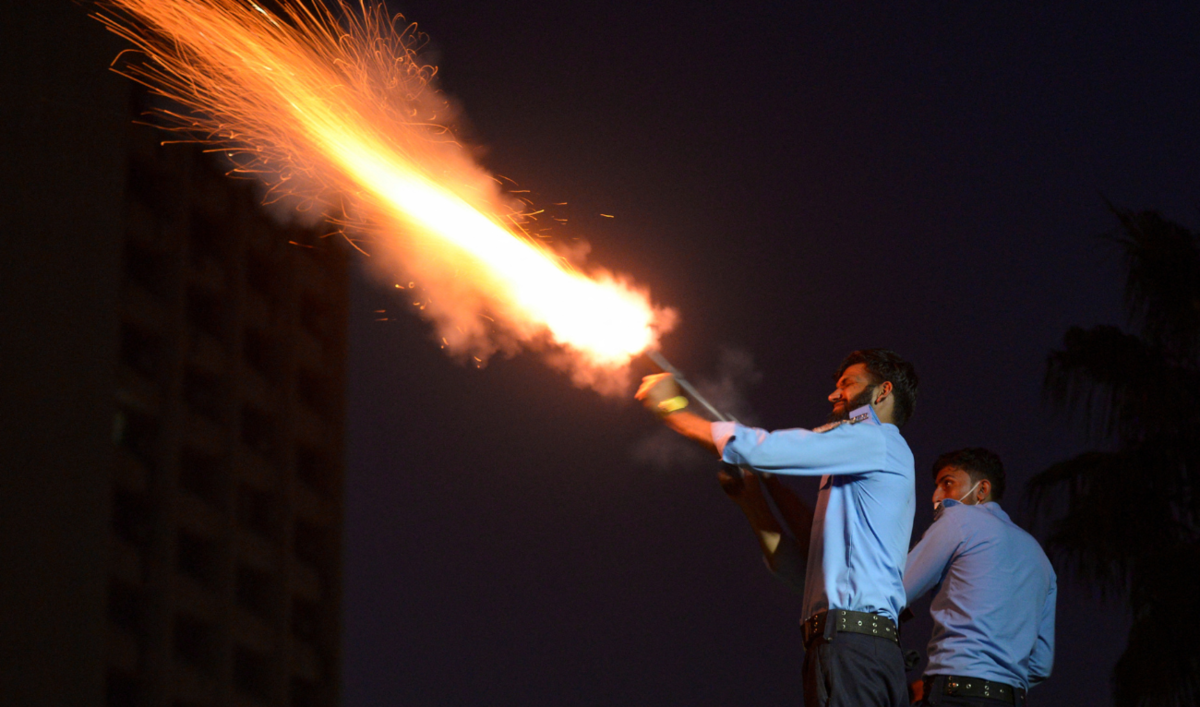ISLAMABAD: Former prime minister Imran Khan’s Pakistan Tehreek-e-Insaf (PTI) party has announced protests in Lahore and all other districts across Pakistan’s biggest Punjab province on Saturday, saying another demonstration in the federal capital of Islamabad would continue simultaneously.
The PTI has been holding protests across several Pakistani cities this week against proposed constitutional amendments that it claims are aimed at curtailing the independence of the judiciary, a charge the government denies.

Supporters of imprisoned former Prime Minister Imran Khan's party Pakistan Tehreek-e-Insaf chant slogans and ask for the release of Imran Khan during a protest in Islamabad, Pakistan, Friday, Oct. 4, 2024.(AFP)
The Pakistani opposition party is also trying to mobilize supporters through large public gatherings to put pressure for the release of Khan, who has been in prison since August last year and faces a slew of legal challenges.
The PTI initially announced a protest in Lahore on Saturday, but Hammad Azhar, a key member of the party, announced on X that demonstrations would be held in all districts across the province.
“Islamabad protest will continue,” he said. “Apart from this, it is announced that protests will begin in all districts of Punjab from today. People from Lahore and its surroundings will join the protest in Lahore. There is a call for peaceful protests from today in all the rest of the districts of Punjab.”
Local news channels reported authorities had placed shipping containers on roads leading to the Minar-e-Pakistan monument in Lahore, where the PTI plans to hold the protest.

Pakistani Frontier Constabulary (FC) personnel stand guard in front of shipping containers after authorities blocked the road during a protest by the activists and supporters of former Prime Minister Imran Khan's Pakistan Tehreek-e-Insaf (PTI) party, in Islamabad on October 4, 2024. (AFP)
Azhar’s announcement came hours after police fired tear gas and arrested Khan supporters at the demonstration in Islamabad, with Interior Minister Mohsin Naqvi saying the government would not allow violent protests in the capital.
Mobile phone services remained suspended, while all major roads and highways leading to Islamabad were blocked off for a second consecutive day on Saturday. The federal government also deployed army troops in the capital on Saturday to ensure security ahead of a summit of the Shanghai Cooperation Organization (SCO) that is scheduled to be held later this month.
Caravans of Khan supporters led by, Chief Minister Ali Amin Gandapur, were present at Burhan Interchange, some 60 kilometers from Islamabad. The caravans have been en route to the D-Chowk square in Islamabad from the Khyber Pakhtunkhwa province, where Gandapur heads the PTI government, since Friday, with sporadic clashes taking place between protesters and police at different locations.
Clashes erupted in Islamabad on Friday evening as Khan supporters tried to march toward D-Chowk in Islamabad, where they had planned to hold the demonstration.

Police officers fire tear gas shells to disperse the supporters of jailed former Pakistani Prime Minister Imran Khan's party, the Pakistan Tehreek-e-Insaf (PTI), as they gather for an anti-government rally in Islamabad, Pakistan, October 4, 2024. (REUTERS)
Islamabad police chief Ali Nasir Rizvi told media over 30 people had been arrested for violating Section 144 of the Code of Criminal Procedure, which allows the district administration to outlaw gatherings of more than four people on account of security threats. The ban was imposed in Islamabad as well as the cities of Lahore, Rawalpindi, Attock and Sargodha ahead of this week’s protests by the PTI.
Addressing a press conference, Naqvi accused PTI supporters of coming to the Islamabad protest armed.
“They have a right to hold a rally but not the way it’s going on,” he told reporters. “It’s every Pakistani’s right [to protest]. If they want to voice their opinion they can, but this is not the way to do it. It’s wrong what they are doing, and we can’t give permission for this.”
Residents complained of immense difficulties in navigating the twin cities.
“You don’t want people to come into the city [Islamabad] and get to D-Chowk where the protest is but at least let people go outside the city,” taxi driver Arshad Shad, who was on foot, told Arab News. “Buses can’t move, there is no Internet, no mobile phone service. Families are stuck, they can’t come or go. So I don’t understand what the government is doing, they are only making life more difficult for the public.”
Zafar Iqbal, who deals in the sale and purchase of property, lamented frequent protests and their impact on businesses in the twin cities.
“Every fourth day there is a protest. This is very wrong. This shouldn’t happen. People’s businesses are getting affected and the public is being humiliated,” he told Arab News. “This is a curse for the public, for businessmen. There is already no business and people are worried.”
















